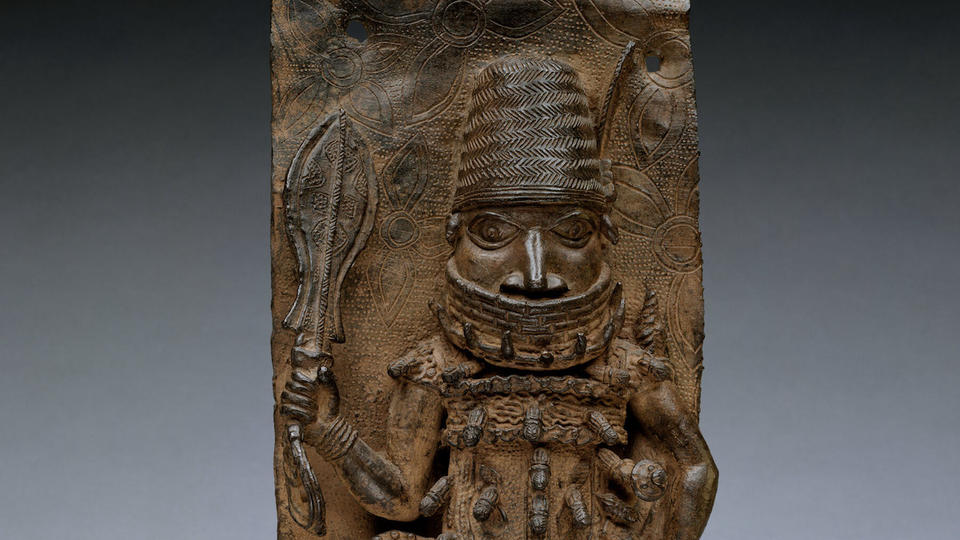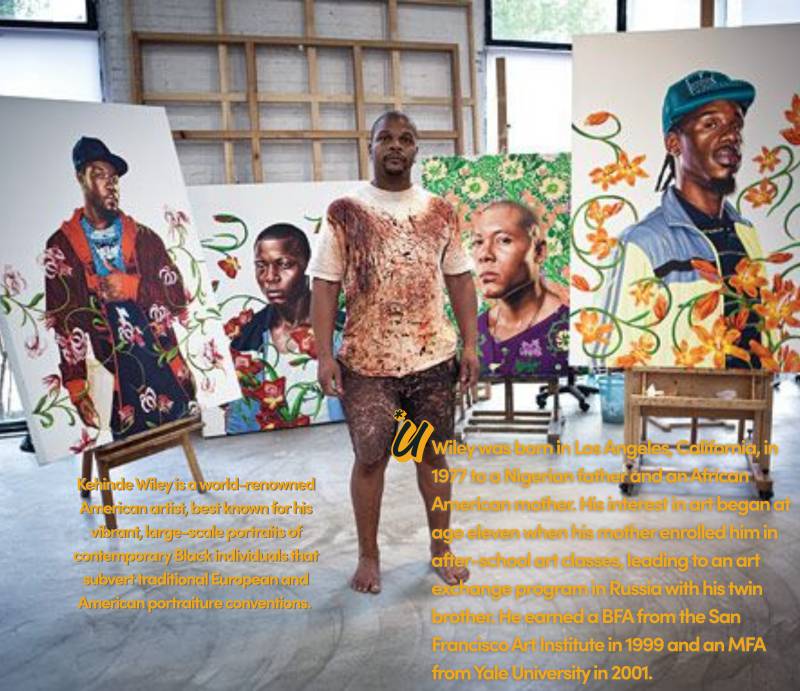The Metropolitan Museum of Art in New York has held one of the largest collections in the U.S. of Benin Bronzes, a group of objects looted by British soldiers in 1897 from the Kingdom of Benin, in what is now Nigeria. Now, the museum said it is planning to return to Nigeria two such objects in its holdings, along with a third work, a brass head produced in the ancient Yoruba city of Ife in Nigeria.
Sending back the two Benin Bronzes is a relatively minor step with potentially major implications. The Met is believed to hold around 160 works from the Court of Benin, though some estimates place the number as high as 300, so the ones being returned to Nigeria represent a small fraction of what the museum owns from the group. But it has been rare for U.S. museums to commit to returning Benin Bronzes, and it is possible that other institutions in the country may follow the Met’s lead.
Met Gala Roundup, Philadelphia Museum Repatriates Shield, and Winston Churchill Painting to Auction
In its release announcing the return, the Met said it was planning to send back two brass plaques: one featuring a warrior chief, the other depicting a junior court official. Both date to the 16th century.
The plaques have been considered some of the most valuable objects taken from the Kingdom of Benin. They were plundered during a military campaign, transported to England, and later dispersed across the world. For many, the Benin Bronzes have been considered a potent symbol of colonialism’s long-lasting legacy. Others have claimed that museums and collectors should not repatriate the objects because they now belong to other countries’ cultural heritage.
The Met said that the two Benin Bronzes being returned had originally been held by the British Museum, which still owns hundreds of Benin Bronzes. (The British Museum has not announced plans to return any of its Benin Bronzes.) Sometime around 1950 or 1951, the British Museum transferred ownership of the plaques to the National Museum in Lagos. According to the Met, the plaques then “entered the international art market at an unknown date and under unclear circumstances and were eventually acquired by a New York collector,” who went unnamed in the release. That collector then gave the works to the museum.
Unlike the plaques, the Ife head being returned was not officially part of the Met’s collection. A unidentified seller had offered the work to the Met “under the misapprehension that legal title” to the work belonged to Nigerian National Commission for Museums and Monuments, the Met said. Upon further research, the Met determined that it should be sent back.
Max Hollein, the Met’s director, said in a statement, “The retention of these works within Nigeria’s National Collections is critical to the well-being of the museum community and to fostering ongoing cooperation and dialogue between The Met and our Nigerian counterparts.”
[Why the Benin Bronzes continue to generate controversy.]
The Met’s decision to return two of its Benin Bronzes comes amid increasingly impassioned calls from curators, historians, artists, and activists for the repatriation of objects from the group, particularly in Europe. Earlier this year, Scotland’s University of Aberdeen said it would repatriate the sole Benin Bronze in its holdings, becoming the first institution worldwide to do so, and Germany committed to returning the hundreds of objects from the group in its national holdings starting in 2022.
Behind much of this momentum is the Digital Benin group, which works with institutions around the world to identify Benin Bronzes in their collections and aid in researching the works’ provenances. Repatriated works are expected to eventually go on view at the David Adjaye–designed Edo Museum of West African Art in Benin City, Nigeria, which is due to open in 2025.
Alhaji Lai Mohammed, the Nigerian minister of information and culture, said in a statement, “We welcome the rapprochement developing in the museum world, and appreciate the sense of justice displayed by The Metropolitan Museum of Art. Nigeria enjoins other museums to take a cue from this. The art world can be a better place if every possessor of cultural artifacts considers the rights and feelings of the dispossessed.”




